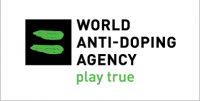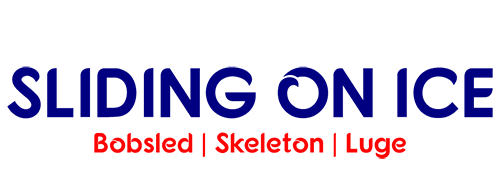From Lausanne, SUI
This story is breaking, and updates will be made with comments as they become available.
Dec. 9, 2019 – For the second time since the 2014 Olympic Games, the Word Anti-Doping Agency (WADA) has declared the Russian Anti-Doping Agency (RUSADA) non-compliant, and has once again recommended sanctions for the country for the next four years.
The vote to sanction Russia was unanimous.
The sanctions come from a 2018 decision by the WADA to reinstate Russia, with conditions that it turn over all original data regarding it’s doping program. Russia originally missed a December 2018 deadline, but did turn in data in January 2019.
A lengthy investigation by the WADA showed that data to have been manipulated and not “authentic”, with data being removed or altered, and other data fabricated in order to hamper the WADA investigative work.
 “For too long, Russian doping has detracted from clean sport. The blatant breach by the Russian authorities of RUSADA’s reinstatement conditions, approved by the Executive Committee in September 2018, demanded a robust response. That is exactly what has been delivered today,” WADA president Sir Craig Reedie said in a statement issued by the WADA. “Russia was afforded every opportunity to get its house in order and re-join the global anti-doping community for the good of its athletes and of the integrity of sport, but it chose instead to continue in its stance of deception and denial.”
“For too long, Russian doping has detracted from clean sport. The blatant breach by the Russian authorities of RUSADA’s reinstatement conditions, approved by the Executive Committee in September 2018, demanded a robust response. That is exactly what has been delivered today,” WADA president Sir Craig Reedie said in a statement issued by the WADA. “Russia was afforded every opportunity to get its house in order and re-join the global anti-doping community for the good of its athletes and of the integrity of sport, but it chose instead to continue in its stance of deception and denial.”
“WADA now has the names of all suspicious athletes in the LIMS database, and thanks to the painstakingly forensic nature of the investigation, this includes the athletes whose data was manipulated or even deleted, including the 145 athletes within WADA’s target group of most suspicious athletes but also others beyond that target group,” said Compliance Review Committee (CRC) Chair Jonathan Taylor QC.
“While I understand the calls for a blanket ban on all Russian athletes whether or not they are implicated by the data, it was the unanimous view of the CRC, which includes an athlete, that in this case, those who could prove their innocence should not be punished, and I am pleased that the WADA ExCo agreed with this.”
With the WADA’s sanctions, they have issued a set of “Series of Consequences”, including:
- Russia may not host in the Four-Year Period or bid for, or be granted in the Four-Year Period, the right to host (whether during or after the Four-Year Period) any editions of Major Events.
- Russia’s Flag may not be flown at any Major Event stages in the Four-Year period.
- Russian athletes and their support personnel may only participate in Major Events staged in the Four-Year Period where they are able to demonstrate that they are not implicated in any way by the non-compliance with conditions including (without limitation) that they are not mentioned in incriminating circumstances in the McLaren Reports, there are no positive fidings reported for the min the database and no data relating to their sample have been manipulated, and that they have been subject to adequate in-competition and out-of-competition testing prior to the event in question according to the WADA.
- In the circumstance above, they may not represent the Russian Federation.
- Where the right to host a Major Event in the Four-Year Period has already been awarded to Russia, the Signatory must withdraw that right and re-assign the event to another country, unless it is legally or practically impossible to do so. In addition, Russia may not bid for the right to host the 2032 Olympic and Paralympic Games, irrespective of whether the bidding takes place during or after the Four-Year Period.
If the IOC adopts the WADA recommendations, it will mean another set of “Olympic Athlete from Russia” athletes both in Tokyo for the 2020 Summer Games and the 2022 Winter Games in Beijing.
From a sliding sport perspective, both the FIL World Championships (artificial track) and FIL European Championships (natural track) are scheduled to be held in Russia this season. The question for the FIL will be if it’s possible to move either event, or are the events so close now (roughly two months away at the time of this writing) that they cannot back out now? Considering the timeline of a possible appeal by Russia, one could assume that both Championships will go on as scheduled.
Russia has until December 26 to accept the notice from WADA, or to take the matter to the Court for Arbitration of Sport.
Reaction from the United States was less than favorable.
“To allow Russia to escape a complete ban is yet another devastating blow to clean athletes, the integrity of sport and the rule of law. And, in turn, the reaction by all those who value sport should be nothing short of a revolt against this broken system to force reform,” said USADA CEO Travis T. Tygart in a USADA statement. (Click here for full USADA statement)
“WADA says one thing and does something entirely different. There is no disputing that Russia has committed the most intentional, deep and broad level of corruption on the entire sports world that has put money over morals, abuse over health and corruption over the Olympic values and all athlete’s dreams. Now clean athletes, sports fans and sponsors are having to suffer through another horrendous Groundhog Day of Russian corruption and domination.”
The United States Bobsled and Skeleton Federation’s remarks mirrored those by USADA. In a statement issued by USABS, CEO John Rosen said: “”The actions are inadequate because they do not include a blanket four-year ban on participation by Russian athletes in international sports which are governed by WADA regulations. The sanctions still allow for the participation of Russian athletes who can “prove” they are competing fairly to participate independently under a neutral flag. At first, this would seem a reasonable accommodation for those who believe in perfect justice – justice in which the guilty are punished, the innocent are not, and collective punishment is not inappropriately imposed.” (Click here for full USABS statement)
The International Olympic Committee leaned toward not wanting to condemn athletes in their first comments regarding the WADA sanctions. They referred to a November 2019 statement where they said “The Russian authorities were responsible for preserving the integrity of the Moscow Data.” (CRC Recommendations to the WADA Executive Committee) At the same time, we also note that the report finds that the sports movement has not been involved in any of this manipulation, and that the report does not indicate any wrongdoing by the sports movement in this regard, in particular the Russian Olympic Committee or its members. In this context, the IOC welcomes the opportunity offered by WADA to Russian athletes to compete, “where they are able to demonstrate that they are not implicated in any way by the non-compliance”. (Click here for full IOC statement)
The IOC’s statement goes on to say “However, given the seriousness of the manipulation, we strongly urge WADA to take further action. This means, in particular, that WADA should refer all these files to the Council of Europe and UNESCO, having regard to the Council of Europe Anti-Doping Convention and the UNESCO International Convention Against Doping in Sport.”
The International Paralympic Committee, who has traditionally took a harder stance on doping matters than the IOC, said that they would wait to see what happened with an appeal: “In accordance with the WADA International Standard for Code Compliance by Signatories, any consequences will then come into effect only following a final decision by the CAS. The IPC cannot therefore implement outcome actions regarding this matter until after a final decision has been reached.” (Click here for full IPC statement)

